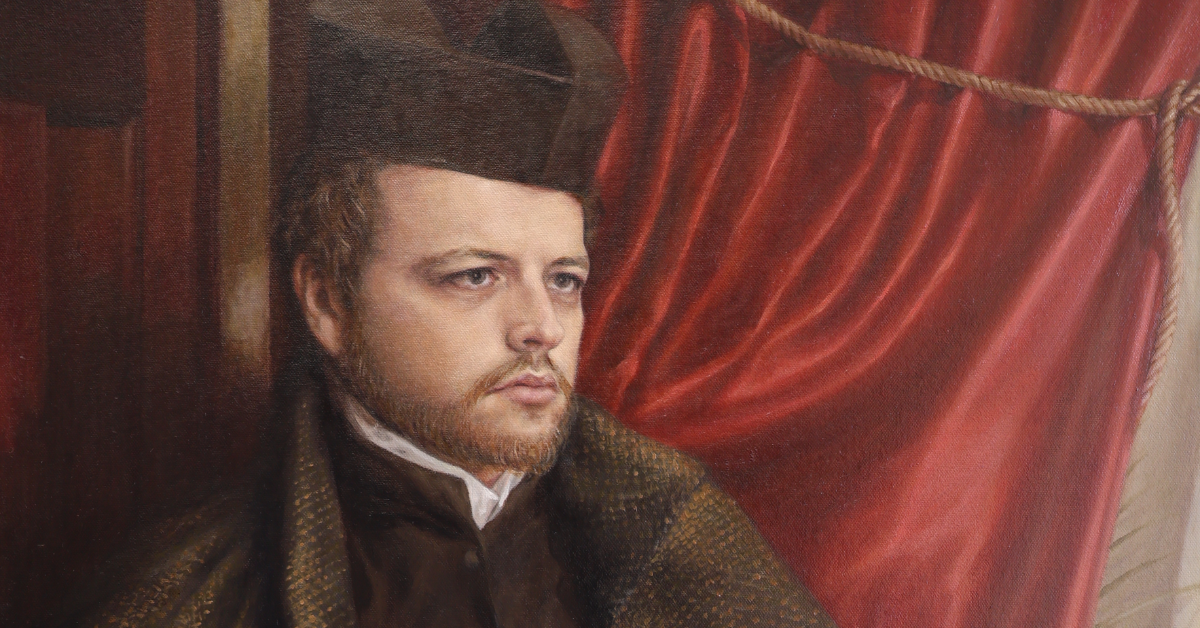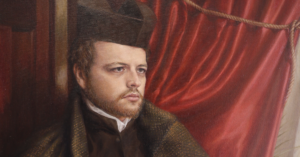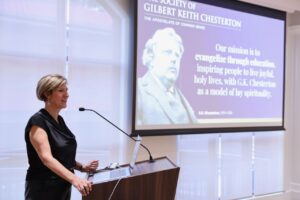

In the heart of Campion College Australia stands a quiet but powerful presence—a man whose life and legacy continue to inspire students, educators, and all those who seek truth through faith and reason. St Edmund Campion, our patron saint, was many things: a brilliant scholar, a gifted orator, a courageous missionary, and ultimately, a martyr for his beliefs. His life, marked by both academic brilliance and spiritual integrity, makes him an ideal model for a Catholic liberal arts college.
The Early Years: Oxford’s Brightest Star
Born in London in 1540, Edmund Campion showed extraordinary promise from an early age. He entered Oxford University at just fifteen and quickly rose to prominence. At seventeen, he was appointed a Junior Fellow at St John’s College and later became a lecturer in rhetoric—a subject that would shape his lifelong mastery of persuasive and elegant expression.
His reputation at Oxford was unmatched. Even Queen Elizabeth I was impressed when he delivered a Latin oration during her 1566 visit to the university. One of the Queen’s chief advisors, Sir William Cecil, referred to Campion as “one of the diamonds of England.” Students at Oxford idolised him, calling themselves “Campionists” and emulating his style of speech, dress and manner. It seemed a brilliant career in the service of the Crown was all but assured.
A Crisis of Conscience
But Campion’s outward success concealed an inner struggle. Although he had taken the Oath of Supremacy and been ordained an Anglican deacon, he became increasingly unsettled about the direction of his faith. In 1569, seeking clarity, he left Oxford for Ireland. It was there, immersed in theological study and contemplation, that Campion returned to the Catholic Church.
During his time in Ireland, he also attempted to establish a Catholic university—a bold vision that anticipated the work of another Oxford convert, John Henry Newman, more than two centuries later. Though his efforts were thwarted, the dream of Catholic higher education lived on, eventually taking root in institutions like Campion College Australia.
Rome, Prague, and the Road to Martyrdom
Campion’s journey soon led him to the continent. He studied at Douai in France, travelled barefoot as a pilgrim to Rome, and joined the Jesuit order—an extraordinary community of scholars and missionaries committed to intellectual and spiritual formation. After his ordination, he was sent to Prague, where he taught, preached, and even wrote Latin plays for his students.
In a prophetic moment, Campion had a vision of the Blessed Virgin Mary foretelling his martyrdom. The symbol of a garland of roses, hanging in the cell where he lived in Prague, would later become a haunting emblem of what was to come.
The English Mission
In 1580, Campion returned to England under cover. Now a Jesuit priest, he was part of the clandestine “English Mission,” risking arrest and death to minister to Catholics during a time of severe persecution. For over a year, he travelled in disguise, celebrating Mass in secret, hearing confessions, and offering spiritual support to the faithful.
He also continued his intellectual work. Most notably, he wrote Decem Rationes (“Ten Reasons”)—a bold and scholarly refutation of Anglican doctrine, which was surreptitiously distributed at Oxford, sparking both admiration and outrage. Anticipating his capture, Campion penned a moving declaration of his purpose, now famously known as Campion’s Brag, asserting: “The expense is reckoned, the enterprise is begun; it is of God; it cannot be withstood.”
Eventually, Campion was betrayed and arrested in July 1581. He was imprisoned in the Tower of London, where he was tortured and offered freedom in exchange for renouncing his faith. He refused.
The Ultimate Witness
Tried on false charges of treason, Campion’s trial was a sham. In his defence, he proclaimed: “In condemning us, you condemn all your own ancestors—all the ancient priests, bishops and kings—all that was once the glory of England.” On December 1, 1581, he was executed at Tyburn, hanged, drawn and quartered.
Campion was canonised by Pope Paul VI in 1970 as one of the Forty Martyrs of England and Wales.
A Patron for Our Time
What does the life of St Edmund Campion mean for us today?
At Campion College, we seek to form graduates who are not only intellectually accomplished but also morally grounded and spiritually alive. In Campion, we find a patron who embodies this integration of faith and intellect, courage and humility, learning and love.
He is not a distant historical figure, but—as Evelyn Waugh wrote—“his voice comes to us across the centuries as though he were walking at our side.” His legacy reminds us that true education is never just about career or credentials. It is about seeking the truth and living it boldly, even when the cost is high.
In a world that often separates reason from belief and knowledge from wisdom, St Edmund Campion offers a radiant counterexample. He is a scholar-saint for the ages—and the perfect patron for a college that dares to unite faith and reason at the heart of its mission.



